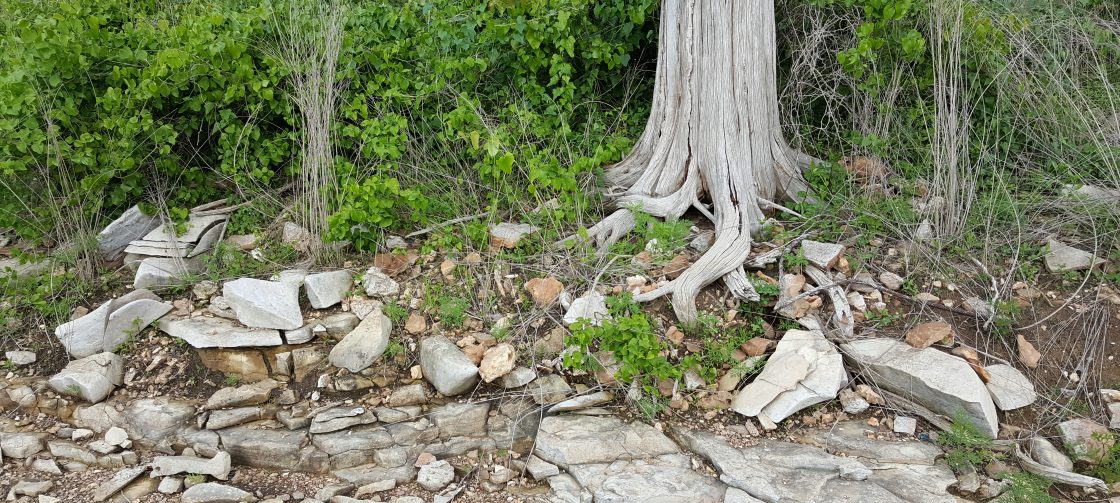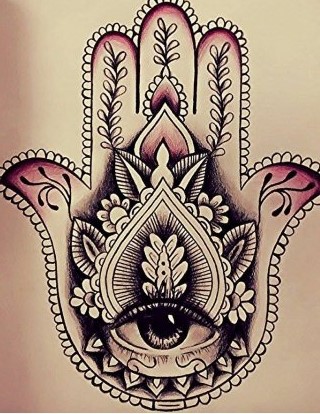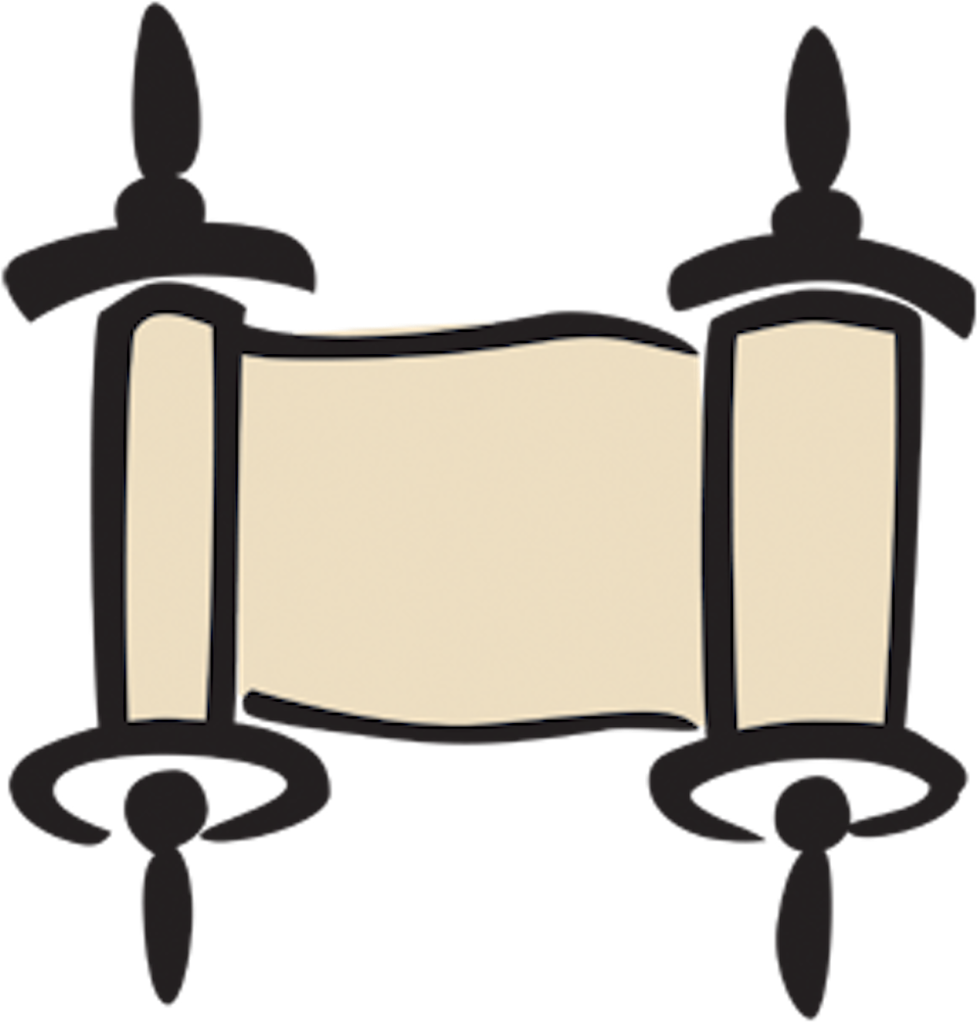The Foundation of Rabbinic Authority
The book, Pirke Avot, Ethics of the Fathers, introduces the work of the Jewish Sages.
Pirke Avot is one of the 63 tractates in the Mishnah (code of Jewish Law) developed between the years 300 BCE and 200 CE. Here we read some very interesting and startling ideas regarding the work of the Fathers, called in Hebrew: “AVOT.” According to Jewish thinking for thousands of years, the Oral Torah (the tradition and interpretation that has been transmitted by rabbis) is equal to or superior to the written Torah of Moses and the Tanakh. Maybe this is why many of my religious Jewish family have little use for the Bible and stand firmly on rabbinic teaching that has, by their own admission, superseded the authority of the written Torah. And maybe this is why my not so religious Jewish family throw the baby out with the bath water, feeling that because they occasionally light Shabbat candles (for which there is NO Torah command) they satisfy at least a small step towards the Mitzvot and somehow puts them on the path to the World to Come.
A few years ago, I met a Jewish friend at a sandwich shop in California. She was eating a ham and cheese sandwich. She was a regular participating member at the local congregation. I was a bit shocked by her choice of ham and cheese and she quickly explained, “There are just too many commandments for me to wrap my head around all of them. I do my best.”
I have heard this many times, many justify pork and shellfish and drive on Shabbat while volunteering at the local food bank as their choice of mitzvah. So, I ask; can one violation be covered up by a good deed?
Of course my friend didn’t even possess a Tanakh or Chumash (5 books of Moses) which underlies the problem of the common Jew not knowing the written Torah or the works of the prophets. This has to do with the work of the ancient rabbis while still in Babylon. How so?
The claimed chain of transmission of the Oral Torah from Sinai down through the ages holds the key. To what extent, if any, were sages and rabbis at that time, or any other, given permission to interpret and remodel the Torah? And does this give them binding authority over the transmission and interpretation of Torah?
What is our Bottom Line?
Those who take the written Torah as it was given to Moses on Sinai as the bottom line—the sole basis for Biblical interpretation, reject the idea that anyone, nor prophet, nor priest nor sage–no matter how studied nor how certified nor in what school he has studied, has the right to re-interpret Hashem’s Holy Words.
How far did the Sages Kick the Ball out of the Court?
Here are a few revealing quotes from Pirke Avot, A Modern Commentary on Jewish Ethics:
“Unlike the other tractates in the Mishnah, Avot is made up of story-like material and maxims known as aggadah. It contains no Halacha, binding legal material. (1) Yet it is supremely important because it justifies the authority of the rabbis, something the Bible could not do. It traces (in the first two chapters) the transmission of Jewish tradition from the revelation at Sinai through the leading rabbis of the generation that led the community following the destruction of the Second Temple. This unbroken chain of tradition provides a foundation for the Mishnah itself.”
“The claim of the divine origin of this Oral Law carried with it the claim of a divine sanction of those who taught that law and a justification, therefore, of (2) the new religious figure, the rabbi, who would take over from the older figures of prophet and priest. That new role required an innovative link to the past.”
“…The hierarchy in society was based on learning: teacher, associate, and student. (3) Those outside the academy were deemed ignorant. Any observances of the mitzvah system outside of the academy system had no efficacy. (4) Bereft of methods of rabbinic Judaism only available in the academy, one cannot gain God’s favor. The Biblical text, standing alone, cannot provide salvation for the individual. Only the interpretation and instructions of the rabbis give us eternal life.” (Numbers and emphasis mine).
Is anyone else shocked at these excerpts from the above?
- (Avot) “… is supremely important because it justifies the authority of the rabbis, something the Bible could not do”
- “…the new religious figure, the rabbi, who would take over from the older figures of prophet and priest.”
- “Those outside the academy were deemed ignorant. Any observances of the mitzvah system outside of the academy system had no efficacy.”
- “Bereft of methods of rabbinic Judaism only available in the academy, one cannot gain God’s favor. The Biblical text, standing alone, cannot provide salvation for the individual. Only the interpretation and instructions of the rabbis give us eternal life.”
So if I am to embrace the beliefs and Halacha of rabbinic Judaism, I need to go back to the foundation and see what it is based on. Clearly, Pirke Avot establishes a foundation on the authority of the rabbis and takes it away from the ordained channels of the Torah by it’s own admission.
Here are a few more quotes from Pirke Avot:
From Chapter 1: “The great assembly said three things…Be deliberate in judgment, raise up many disciples, and make a fence around the Torah.”
First, what is the Great Assembly and did it replace the prophets of Israel? When did the last prophet live? Or did it take over during the lives of any of the last prophets?
“According to traditional Jewish historiography, the Great Assembly (Anshe Knesset HaGedolah) was an assembly of 120 rabbis that ruled in the period after the time of the prophets up to the time of the development of rabbinic Judaism in 70 CE. They bridge a period of about two centuries.” (from this quote it appears that the Great Assembly was not until after the prophets.)
“The Men of the Great Assembly was an unusual group of Jewish personalities who assumed the reigns of Jewish leadership between 410 BCE and 310 BCE. This time period follows the destruction of the First Temple, and includes the early decades of the Second Temple, up until the invasion of the Greeks, led by Alexander the Great.”
(From this quote, apparently the Great Assembly occurred a bit later than the lives of the last prophets, Haggai, Zechariah and Malachi, who lived to return to Jerusalem at the time of the command to rebuild Jerusalem and the Temple. (circa 520 BCE).
“According to Rashi, there were 48 prophets and 7 prophetesses of Judaism. The last Jewish prophet is believed to have been Malachi. In Jewish tradition it is believed that the period of prophecy, called Nevuah, ended with Haggai, Zechariah, and Malachi at which time the “Shechinah departed from Israel” (Perhaps we need to ask why it departed.)
Make a Fence:
The rabbis’ first set of instructions recorded in Pirke Avot included the injunction to “make a fence around the Torah.” What does it mean to make a fence? I think this can be illustrated from the Sinai story and the command to set boundaries around the mountain.
“be ready by the third day: for on the third day the Lord will come down in the sight of all the people upon mount Sinai. And thou shalt set bounds to the people round about, saying, Take heed to yourselves, that you go not up into the mountain, or touch the border of it: whoever touches the mountain shall be surely put to death: no hand shall touch him, but he shall surely be stoned, or shot through; whether it be beast or man, it shall not live: when the shofar sounds long, they shall come up to the mountain.” Exo 19 vs. 11-13
Then three days later, when it was time for Hashem to speak to Israel….
“the Lord called Moses up to the top of the mount; and Moses went up. And the Lord said to Moses, Go down, charge the people, lest they break through to the Lord to gaze, and many of them perish.” Exo 19:20-21
Moses claimed that the boundaries were set and the people had been instructed. He asserted that there was no need for a second set of boundaries. But he did descend, warned the people and ask Aaron to join him on the mount.
Moses did not think it was needed to build a second fence, only to warn the people. So if Moses thought one fence was enough, then why do the rabbis assert that we need to build more and more fences? Hashem’s instructions were enough. What happens when we create more and more fences? We get farther and farther from Sinai and the commandment! We need to be close enough to the original commandment to understand it. We cannot distance ourselves to another corner of the planet (Babylon perhaps?) and still hear Hashem’s voice. So a rabbinic fence around the Torah becomes a fence in the name of that rabbi. Does anyone read me? How many times do we read, and such and such a rabbi said in the name of a more important rabbi, that such and such should be done…thus giving rabbinic authority but never mentioning Hashem!
I remember when we first came to Israel we had the custom of taking a liesurely Shabbat afternoon walk in a wadi or forest. On one occasion, I saw a gorgeous new flower growing on a bush along the path. I went over to it to smell it. Out of the blue, a dark clad, fully covered Hassidic woman and her daughter shouted at me in English that I must not touch a flower on Shabbat. What? She explained that if I even smelled the flower, I would be tempted to pick it. Then, I would be guilty of breaking two commandments; one that of harvesting, and the other of carrying outside of the Eruv on Shabbat. Oh really? Go figure, there is the example of adding fences to fences about everything! So what is the original harvesting and carrying commandments given by Hashem and how have those commandments been manipulated to create a dozen more fences which completely take away the original intent? So, I was going to smell a flower, maybe even pick one…Hmmm. But this is adding to the Torah just as Hava did in Eden when she told the snake that Hashem had commanded: “neither shall ye touch it lest ye die.” And so the first fence was created by our first mother with the results we all see in the world today! Stop adding to the commandments! How many of the original 613 commandments have come down to us protected by fences that to the logical mind make little sense? Here is what the rabbis said to justify their adding to the Torah:
“Rabbi Chananya, son of Akashya, said, “The Holy One of blessing wished to convey merit upon Israel; therefore God multiplied the Torah and commandments for them, as it is stated (in Scripture): Adonai was pleased, for divine righteousness” sake, to make the teaching great and glorious.” (Isa 42:21)
Take a closer look at Isaiah 42–context is crucial. Read the whole chapter. Is this talking about multiplying Torah mitzvot? When a single verse is clipped out of the middle of a chapter, then pretext is used for justification. See what follows in Isaiah 42 (it is speaking of what happens when there is disobedience to the Torah—not about justifying the rabbis when they multiply fences!)
“Therefore this is a people robbed and spoiled; they are all of them snared in holes, and they are hid in prison houses: they are for a prey, and none delivers; for a spoil, and none says, Restore. Who among you will give ear to this? who will hearken and hear for the time to come? Who gave Yaakov for a spoil, and Yisrael to the robbers? did not the Lord, he against whom we have sinned, and in whose ways they would not walk, and unto whose Torah they were not obedient?Therefore he has poured upon him the fury of his anger, and the strength of battle: and it has set him on fire round about, yet he knew not; and it burned him, yet he laid it not to heart.”Isa 42:22-25
After Moses passed the cloak of authority for the leadership to Joshua, Hashem met him (Joshua) and told him:
“Only be strong and very courageous, to observe to do according to all the law, which Moses my servant commanded you: turn not from it to the right hand or to the left, that you may have good success wherever you go” (Joshua 1:7)
Joshua was not given permission to alter, add to or turn from what had been given to Moses. Surely later generations were not given this right either!
Raise up many disciples—to Whom or to What?
What did the rabbis mean when they commanded “to raise up many disciples?” To whom? If the meaning of this command was that their work was to attach many to the study of the written Torah of Moses, then there would be many Torah scholars who would be their own poseks, strong on what Moses wrote. However, if and this is indicated throughout rabbinic writings, they were to raise up disciples to their own interpretations of their Oral Torah which have been embellished with the fences and additional commentaries of the rabbis, ad infinitum, then those disciples foundation is upon the rabbinic teachings and not the Word of Hashem. Thus credit is always given when a rabbi states a teaching, referring to the one he learned it from, to the rabbi who was greater than he who got it from the rabbi who was even greater, on back to the first place the topic was interpreted in that manner.
So there you have it, as claimed previously, the Bible without the interpretation of the rabbis offers no salvation. But does it really “offer no salvation”?
If the truth of Tanakh/Torah is basic to our understanding of the will of Hashem, then what does it say regarding the ability of the simple to understand it?
“if you obey the voice of the LORD your God, to keep His commandments and His statutes which are written in this Book of the Law, if you turn to the LORD your God with all your heart and with all your soul. For this commandment which I command you today is not too mysterious for you, nor is it far off. It is not in heaven, that you should say, ‘Who will ascend into heaven for us and bring it to us, that we may hear it and do it?’ Nor is it beyond the sea, that you should say, ‘Who will go over the sea for us and bring it to us, that we may hear it and do it?’ But the word is very near you, in your mouth and in your heart, that you may do it.” Deu 30:10-14
So the rabbis say we need their interpretation, but Tanakh says it is simple and does not need to be explained, for it is in our hearts so that we may do it. Which has the most authority? That will have to be an individual decision, won’t it?
King David said it in other words:
“The Torah of the Lord is perfect, restoring the soul: the testimony of the Lord is sure, making wise the simple. The statutes of the Lord are right, rejoicing the heart: the commandment of the Lord is pure, enlightening the eyes. The fear of the Lord is clean, enduring forever: the judgments of the Lord are true and are righteous altogether. More to be desired are they than gold, even much fine gold: sweeter also than honey and the honeycomb. Moreover by them is Thy servant enlightened: and in keeping of them there is great reward.” Psa 19:8-12
“Blessed is the man who does not walk in the counsel of the wicked, nor stands in the way of sinners, nor sits in the seat of scorners. But his delight is in the Torah of the Lord; and in his Torah he meditates day and night. And he shall be like a tree planted by streams of water, that brings forth its fruit in its season; its leaf also shall not wither; and in whatever he does he shall prosper.” Psa 1:1-3
Which came first? The chicken or the egg?
How do we know that the Tanakh is speaking of the Written and not the Oral Torah? The Psalms were purportedly written or inspired by David and his contemporaries, written before the work of the Sages, including the writing down of either the Jerusalem or Babylonian Talmuds. The consensus is that the Psalms were written before the time period when the Talmud, Mishnah and Gemarah, were completed, (second century – 5th century CE).
The work of writing down the Oral Tradition was begun by Yehuda haNassi, the last of the Tannaim, who lived until 217 CE. Though Jewish tradition holds that the Oral Torah was given at Sinai, there are many evidences that, at least most of it, did not originate there. How can we know for sure? Perhaps the best way to tell is if they agree with Tanakh and Torah which MUST be our bottom line. If not, then they are based on men’s interpretations which could be as truthful as today’s Mainstream Media! And the fact that the sages disagree on almost every point of Halacha shows that they are not bottom line. Discernment comes from reading the Torah and Tanakh.
One Tiny Word and a Huge Change in Meaning:
“All Israel has a share in the World to Come, as it is said: “And your people are all righteous; they shall inherit the land forever; they are the branch of My planting, My handiwork, in which to take pride.” (Taken from Isaiah 60:21 quoted without reference) Pirke Avot, Ch 1
That sounds simple enough but take a closer look! The word ARE has been inserted in the place of SHALL BE—What can we make of that?
So it does not matter how much evil a Jew may do, he will still merit the Olam Haba? This seems like salvation guaranteed by a holy blood line! (maybe this is a little like the virgin birth in Christianity!? Born of a holy mother, spotless blood!)
So with that supposition, there is no need of obedience to assure a place in the world to come? But then, why do we need Torah, since supposedly, if we are born of a Jewish mother we then have our destiny fixed? What is the point?
Let’s go back and read Isaiah 60
“And your people shall be all righteous; they shall inherit the land forever; they are the branch of My planting, My handiwork, in which to take pride.”
So who are Hashem’s people? If we take the following verses as truth, we understand that it speaks of those who obey the Torah. And those who are disobedient (wicked) are not His people. Simple isn’t it? So it is not about the blood is it? The blood line (race) is reckoned for establishing who is of Jewish lineage. It is NOT about salvation or righteousness!
Verses that show conditionality to the promises to Israel:
“And Moses returned to the Lord, and said, Oh, this people has sinned a great sin, and they have made them gods of gold. Yet now, if thou wilt forgive their sin – ; and if not, blot me, I pray thee, out of thy book which thou hast written. And the Lord said to Moses, Whoever has sinned against me, him will I blot out of my book. Exo 32:31-33
“Behold, I set before you this day a blessing and a curse: the blessing, if ye shall hearken unto the commandments of the LORD your God, which I command you this day; and the curse, if ye shall not hearken unto the commandments of the LORD your God, but turn aside out of the way which I command you this day, to go after other gods, which ye have not known.” Deu 11: 26-28
“The eyes of the LORD are on the righteous, His ears attentive to their cry.
The face of the LORD is set against evildoers, to erase their names from the earth.” Psa 34:16-17
“For evildoers shall be cut off: but those who wait upon the Lord, they shall inherit the earth.” Psa 37:9
“The person who sins, he alone shall die. A child shall not share the burden of a parent’s guilt, nor shall a parent share the burden of a child’s guilt; the righteousness of the righteous shall be accounted to him alone, and the wickedness of the wicked shall be accounted to him alone…Is it my desire that a wicked person shall die?—says the Lord GOD. It is rather that he shall turn back from his ways and live. So, too, if a righteous person turns away from his righteousness and does wrong, practicing the very abominations that the wicked person practiced, shall he live? None of the righteous deeds that he did shall be remembered; because of the treachery he has practiced and the sins he has committed—because of these, he shall die.” Eze 18:20-24
“And at that time thy people shall be delivered, every one who shall be found written in the book. And many of those who sleep in the dust of the earth shall awake, some to everlasting life, and some to shame and everlasting contempt.” Daniel 12: 2 (only those written in the book are assigned to life…)
“At one moment I may decree that a nation or a kingdom shall be uprooted and pulled down and destroyed; but if that nation against which I made the decree turns back from its wickedness, I change My mind concerning the punishment I planned to bring on it. At another moment I may decree that a nation or a kingdom shall be built and planted; but if it does what is displeasing to Me and does not obey Me, then I change My mind concerning the good I planned to bestow upon it. And now, say to the men of Judah and the inhabitants of Jerusalem: Thus said the LORD: I am devising disaster for you and laying plans against you. Turn back, each of you, from your wicked ways, and mend your ways and your actions!” Jeremiah 18:7-11
A Closer Look at the Chain of Transmission: when and how did it become Divine authority?
“The foundation stone for rabbinic authority begins with this first Mishnah [see link and footnote] and describes the chain of tradition, which stretches from Moses to Judah the Prince (the rabbi who compiled the Mishnah). Thus the Mishnah, the product of the rabbis, those who argued that the Oral Law had been given at Sinai together with the Written Law, is inseparably linked to Moses who first received the Torah.”
What was the Great Assembly, and when did it exist?
It is somewhat difficult to trace down beginning dates but according to a few of the great rabbis in history, including Rashi and Bartinoro: “the Great Assembly was so named because it returned the Torah to its original purity. It stems from the Persian period and represents for the rabbis the transition between the prophets and themselves.”
“By including the men of the Great Assembly in the chain of tradition, the rabbis found a paradigm for their own work. Just as the men of the Great Assembly had to explain the meaning of Torah, the rabbis would also interpret what the Torah meant generation by generation. Some modern scholars believe the entire institution is legendary.”
So by using this alibi, the rabbis established a foundational credibility by which they could continue their work as leaders of the Jewish people, claim divine inspiration as they handled the Torah and keep the people believing they were the only trustworthy source for understanding the Torah, both Oral and Written.
The first recognized historical rabbi was the last of the Great Assembly. He is known as Shimon HaTzadik or Simon the Righteous, a High Priest, though some sources say that neither his identity, nor the actual dates of his life are clear. (See)
“He was either Simeon I (310-291 or 300-270 B.C.E.), son of Onias I, or Simeon II (219-199 B.C.E.), son of Onias II…Simon is the first in the chain of scholars, descending to Hillel and Shammai…He is also mentioned as one of the survivors of the Great Assembly—acting as a pivotal character for the transition of the authority from the priest to the rabbis.”
“When Shimon HaTzaddik, the last member of the Great Assembly died in 273 BCE, a period began known as the period of the Zugot, meaning “pairs.”
The last of these pairs was Hillel and Shammai, during the period of the tannaim. They established two schools (houses) of thought named after them; the House of Hillel and the House of Shammai.
“The Mishnah mentions the disagreement of Hillel and Shammai as one which had lasting positive value: In most cases, though not always, Beit (house of) Hillel’s opinion is the more lenient and tolerant of the two. In nearly all cases, Beit Hillel’s opinion has been accepted as normative by halacha, and is the opinion followed by modern Jews.”
It is interesting to note a marked descrepancy that I will show in the following paragraphs, concerning the rabbis claim that they did not need to listen to heavenly voices, however at this time over a disagreement between both Houses, there was a claimed heavenly voice that established the House of Hillel as the basis of Jewish halacha.
“The schools of Hillel and Shammai are famous for their disputes in Jewish law. One of these concerned whether one should tell a bride on her wedding day that she is beautiful even if this is not true. The school of Shammai held that in this situation it would be wrong to lie. The school of Hillel held that a bride is always beautiful on her wedding day. (Talmud, Ketubot 16b-17a) The school of Hillel won the dispute. Indeed, Jewish law today almost always agrees with the school of Hillel. The Talmud (Eruvin 13b) explains why: A heavenly voice declared: ‘The words of both schools are the words of the living God, but the law follows the rulings of the school of Hillel.’”
Discounting the Voice from Heaven:
From the Talmud, here is the story of the debate over authority as established over the decision of whether or not the oven of Achnai was pure, often referred to as R. Eliezer’s Oven:
“This is the “oven of Achnai.” What is Achnai? Said Rabbi Yehudah in the name of Shmuel: That they surrounded it with words [of debate] like an Achnai snake, and declared it impure. It was taught: On that day R. Eliezer answered all the answers on earth and they did not accept it from him. He said, “If the law is like me, the carob tree will prove it”; the carob tree was uprooted from its place one hundred Amah, some say four hundred Amah. They said: “We do not bring proof from a carob tree.”… He went and said “If the law is like me the water channel will prove it”; the water channel flowed in reverse direction. They said: “We do not bring proof from a water channel.” He went and said “If the law is as I say the walls of the House of Study will prove it”; the walls of the House of Study inclined to fall. R. Yehoshua protested at them, saying to them “If scholars defeat each other in the law, how does it better you?” They did not fall because of the honor of R. Yehoshua and they did not straighten, because of the honor of R. Eliezer, and they still incline and stand…. [R. Eliezer] went and said, “If the law is like me, from Heaven they will prove it”; a heavenly voice came out and said, “What have you with R. Eliezer, who the law is like him in every place?” R. Yehoshua stood on his feet and said “[The Torah] is not in heaven,” (Deuteronomy 30:12). What does “[The Torah] is not in heaven” mean? R. Yirmiyah said: “That the Torah was already given at Sinai, we do not pay attention to a heavenly voice, since You already wrote at Sinai in the Torah, “After the majority to incline,” (Exodus 23:2). R. Natan met the prophet Elijah and said to him, “What did the Holy One Blessed be He do in that hour?” He said to him: “He smiled and said, “My sons have defeated Me, My sons have defeated Me.”
The Rabbis Claim they have the Injunction to Incline after the Majority–is this so?
“Thou shalt not follow a multitude to do evil; neither shalt thou speak in a cause to incline after a multitude to pervert justice.” Exodus 23:2
(so how did they misconstrue this to say just the opposite? Is it possible that the positive can be taken from it and made to say “thou shalt follow a multitude to follow the decision of the holy rabbis?–Even when what they say adds to or takes away from the written Torah? You decide!)
An Image of Jealousy
In the writings of the prophet Ezekiel, he is instructed by Hashem to observe an Image of Jealousy which appears in the Temple. This image symbolized traditions that were being carried out in the Temple, replacing the Torah with traditions of men. Ezekiel 8 shows that the leadership at the time was taking their teachings from Babylon. Ezekiel was told to dig a hole in the mud wall and see what they were actually doing. Their traditions included worshiping towards the East; sun worship, astrology, idolatry, observance of times. They had abandoned the simple Torah instructions for Temple worship and had replaced them with elements of the tradition that they had imported from Babylon.
What we see is that each succeeding generation founded on the sands and teachings of tradition has produced nothing more solid than the echos of men’s interpretations; a wide breach from the original Truth of Torah!
Today, can we see this Tradition–the imposition of rabbinic teaching, standing in the place of the written Torah. Is this perhaps why there are no Jewish prophets today? In order for us once again to hear from Heaven we need to discard the teachings that have replaced Hashem’s authority, teachings by a leadership that uses methods that were forbidden them in the Torah—methods of divination or even invoking the dead to intercede? Is God even talking to anybody these days? And why seek the wisdom of dead sages if they were the ones who said they did not listen to heaven?
Today, in the chaos of a world gone mad, we desperately need to hear Hashem’s voice. Let us repent of our prayers at graves and our trust in mere men who claim to have the cloak of Heaven. The world is dying and needs the Jews to be a light to the nations, but what light do we have if we do not listen to Heaven? What light do mere men have?
“God is not a man, that he should lie, nor a son of man, that he should change his mind.” Numbers 23:19
Pirke Avot, A Modern Commentary on Jewish Ethics, UAHC Press, New York, New York 1993
Ibid, Introduction, p xii.”
https://www.jewishvirtuallibrary.org/the-great-assembly
https://www.simpletoremember.com/articles/a/the_great_assembly/
http://www.biblepgs.com/Ezra_Haggai_Zech_Nehem.pdf
https://en.wikipedia.org/wiki/Prophets_in_Judaism
Pirke Avot, Sanhedrin 10:1:
https://en.wikipedia.org/wiki/Judah_ha-Nasi
Pirke Avot, quoted in Ohel Sarah Women’s Siddur, Artscroll Series, Korban Minchah, p 531.
The first Mishnah: “At Sinai Moses received the Torah and handed it over to Joshua who handed it over to the prophets who in turn handed it over to the men of the Great Assembly.”
A Modern Commentary on Jewish Ethics, ibid, p. 2
Ibid.
Ibid.
https://en.wikipedia.org/wiki/Simeon_the_Just
Ibid, p. 2-3
https://www.simpletoremember.com/articles/a/hillel_and_shammai/
https://en.wikipedia.org/wiki/Houses_of_Hillel_and_Shammai
https://www.simpletoremember.com/articles/a/hillel_and_shammai/
https://www.sefaria.org/sheets/29619.7?lang=en&with=all&lang2=en; Bava Metzia 59b:1-5











